I am continuing to add photos daily with the idea that eventually there will be about 500 pictures. As previously noted these photos were taken from 1968 to 1970 when I was a Peace Corps volunteer in secondary education and teacher's training in Sierra Leone. For those who may not know Sierra Leone is a small country in area about the size of West Virginia. Within its borders are many ethnic groups including Mende, Temne, Sharbro, Kono, Loko, Kissi, Susu, Mandingo, Fula (or Fulani), Susu, Limba, Yalunka, Kuranko, Krim, Vai, Gola, Bullon, and Krio. The country has a beautiful mountainous coast around Freetown, and an interior of rain forest in the East and South, and of grassland (savannah) in the north. There are parts of the country that get nearly 200 inches of rain between May and October. There is a dry season from November through March.
All photographs are my own and can not be copied or used without permission.
These currently posted images are mainly from the Kenema Area in the Eastern Province of Sierra Leone where we lived. Many are of my Dama Road neighbors, and of our students at the Holy Rosary Secondary School and at the Kenema Teacher's Training College. There are many also from area villages such as Vaama, or Tokpombu, or Bitema, or Gbenderoo, or Foindu. These villages all with less than 100 people in them, all are in the Nongowa Chiefdom in the Kenema District of the Eastern Province of Sierra Leone. All were in walking distance ( 6 miles) of our home. I was lucky to have friends while I lived in Kenema who were willing to show me their villages and teach me about their ways. Kenema was a big town even in those days. Susan and I lived on the HRSS school compound. To this day I appreciate the warmth and friendship of my many friends including Siaka Kpaka, Patrick Garlough, Mama Hokey, the Garlough family (Pa Garlough and his wife Sabina), schoolboys Senesi Edward Lahai, Momo Vandi, and Mansaray Vandi, Mrs. Porter (and her son Bankole), Pa Sam of Vaama (and his wife Massa), and also of our many students both at Kenema Holy Rosary Secondary School (HRSS) and at the Kenema Teacher's Training College. One of our mentors while there was a woman named Mama Hokey Kemoh. She lived across from us at #55 Dama Road. In those days she was the area leader of the Bondo Society (Sowei). She was a regal woman who befriended us, joked with us, and taught us about what it was like to be a Mende woman. Many a night was spent on her veranda listening to a woman named Bonya lead beautiful Mende songs, while other women responded with incredibly beautiful harmony. Some nights this would be to a full moon, and other nights there would be rain beating down on the metal roof. It was Mama Hokey who would send for us and allow us to be there and listen, because she knew how very much I loved the wonderful songs and the very haunting harmonies. In many respects Mama Hokey was a surrogate parent to us while we lived there. In those days I smoked a pipe and thus she nicknamed me "Shmoku Pipee." Mama Hokey also nicknamed a young child living in her household as Hokey "Kpokpoi" - and called her my sister. My sense was that the word kpokpoi (?sp) meant chin in Mende and that Mama Hokey felt that this young girl with the prominent chin looked like me. I am aware as of 2008 that Mama Hokey is still alive, living back in her village of Foindu (Nongowa), but is blind.
There are also many pictures from other parts of the country including my two trips to the Loma Mountains and Bintimani, with many photos from the Kuranko village of Sokurella (?sp) at the base of Bintimani. I made two difficult treks to this area in March 1969 and again in March 1970 to hike in the Loma Mountain range - the highest mountains in West Africa outside of Mt. Cameroon.
In the period 1968 - 70 in Sierra Leone there was some unrest between the two major political parties the SLPP and the APC. We certainly were aware of the issues. However in the last two decades Sierra Leone had a very long, horrendous and very tragic war in which horrific abuses were perpertrated such as the use of child soldiers, mutilations, rape as a politcal policy, this all in a ten years downslide for which, even with the tremendous resilience of its people, may take generations to recover. Sierra Leoneans are indeed a resilient people. They will succeed in rebuilding this once proud and wonderful country. However a generation has been without regular education, has been disrupted by the depravity of the horrible war, and has been dispersed to other parts of the world.
In way of explanation the word BONDO refers to the women's secret society in the area, a society that trained young female initiates to be responsible women in the society. The comprable men's society in our area (Mende) was the PORO society. BINTIMANI is a mountain in the Northern Province of Sierra Leone in the mountain range known as the Loma Mountains. In March of 1969 and again in 1970 I hiked in these mountains and stayed in the remote village of Sokurella at the base of Mt. Bintimani. Bintimani is the highest mountain in West Africa outside of Mt. Cameroon. KENEMA was the town where we lived while in the Peace Corps. HRSS refers to the Holy Rosary Secondary School, the school that we were assigned to and where Susan taught English and history, and where I taught math and science, and was assigned to be the netball coach. TTC refers to the teacher's training college in Kenema that we also taught at. I suspect that many of our students are now important leaders in the Sierra Leone community. Then there are the many spirits (called Devils) such as the black raffia BONDO Devil, symbolizing the women's Bondu Society, GOBOI (Mende) and somewhat wild and frenzied secular men's devil, JOBAI (Mende) - also a men's secular devil. I ask any of my Mende friends to excuse any misspellings. I welcome any corrections since it has been 40 years since I have walked in Mendeline. MENDE refers to one of the major ethnic groups in Sierra Leone. We lived in their area. KURANKO refers to a small ethnic group that lived around the Loma Mountains - the village of Sokurella was a Kuranko village. LIMBA is another ethnic group found in Sierra Leone. DAMA ROAD was the road that we lived on and where many of our neighbors and friends lived (this was in Kenema and was a road that headed to Dama Chiefdom). NONGOWA refers to the chiefdom where we lived and where Kenema was the capital.
Lastly let me thank the Sisters of the Holy Rosary who chose us to be part of the first faculty of the Kenema Holy Rosary Secondary School in 1968, and who tolerated having a non-Catholic man teaching on the compound during our two memorable years there. My most memorable teacher colleague among the Sisters was Sister Adrian (Kathleen Toland) who had been in Nigeria before coming to Sierra Leone. Also Sister Mary Ibar (now Sister Celia Doyle) who came in our second year and taught math and science (at least this is what I remember). Both these women were truly dedicated to their teaching and to the students that they taught. Both seemed to have their purpose in perspective and understood that change was in the wind in the 1960's and that Sierra Leone was emerging from its colonial past as it adjusted to Independence. These two dedicated women were able to be flexible and see in their African young women both hope and promise. These were two very Holy women in the best sense of this term.
Saturday, October 4, 2008
Subscribe to:
Comments (Atom)





































































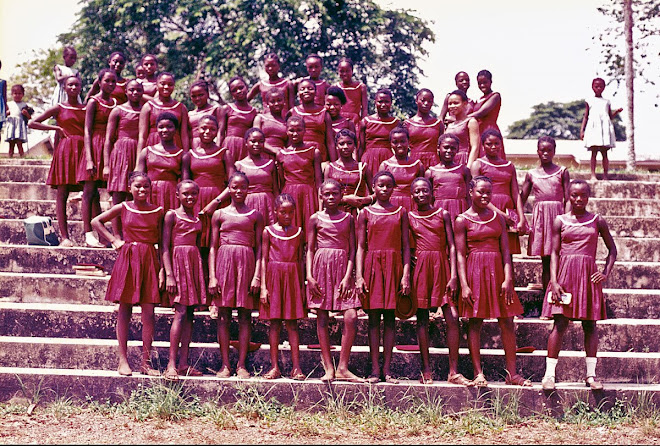.jpg)



























































































































































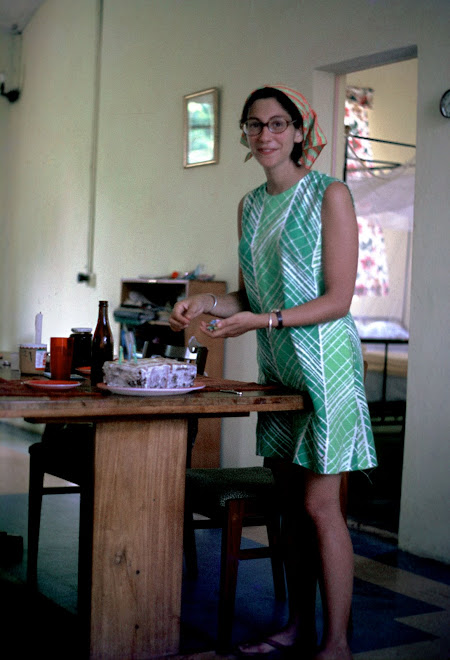
































































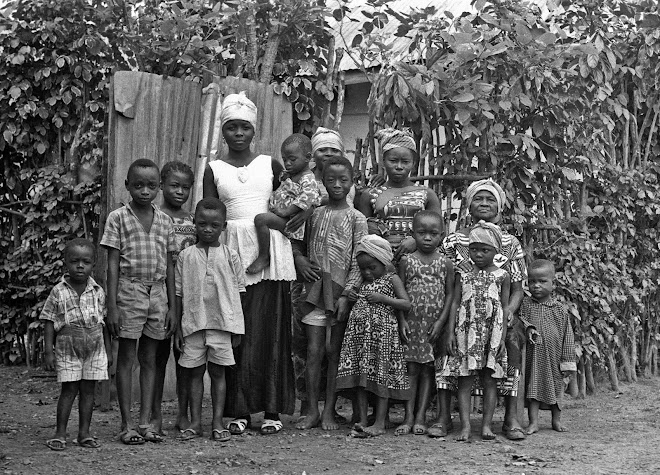.jpg)

















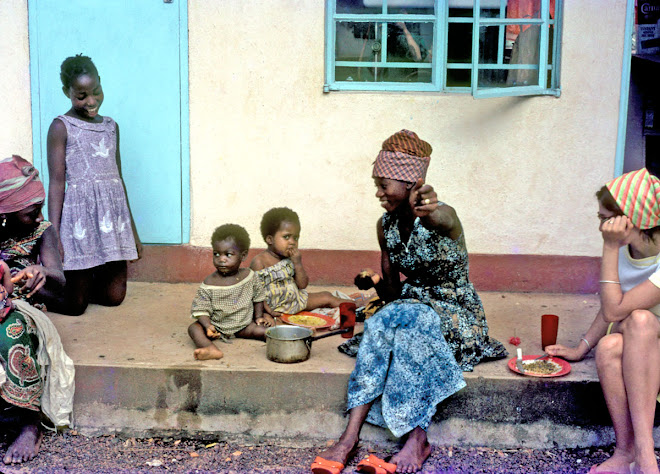



















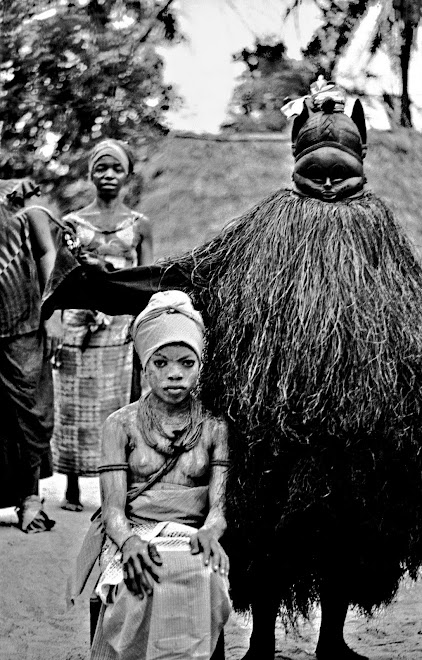-1969.jpg)

















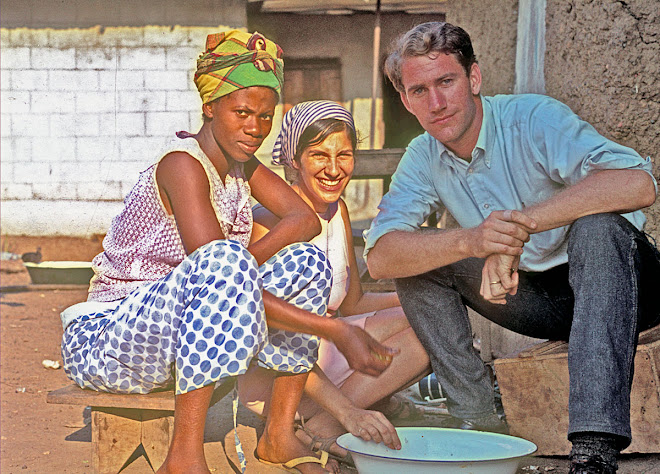













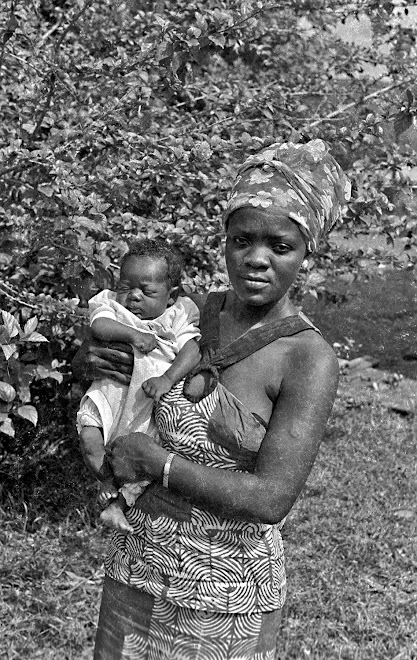-w--child.jpg)


